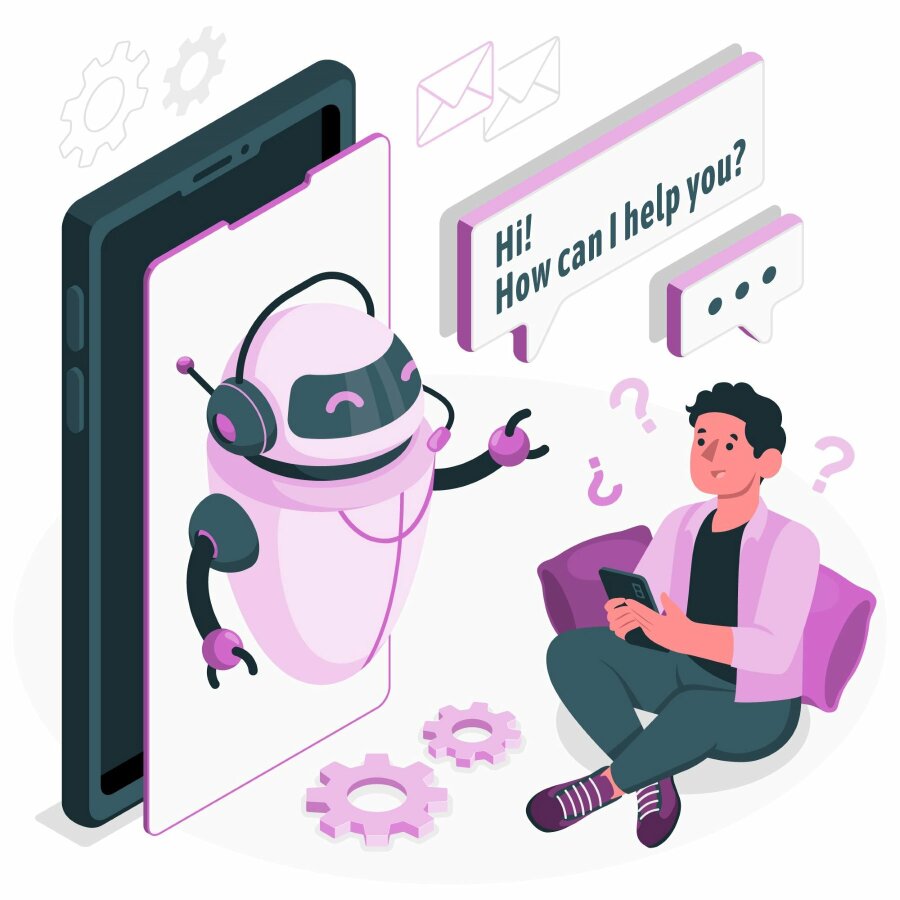The field of legal marketing has seen significant transformation recently and continues to evolve rapidly. Although conventional marketing strategies like billboards and print advertisements still have a place for some lawyers, the development of technology has changed how law firms promote their services. AI in legal marketing is now a topic on every legal marketer’s lips.
AI is one of the most significant developments of our time. This topic has recently been very much brought to the fore when ChatGPT hit the market, along with tools such as Midjourney and DALL-E, but in reality, it is a subject that has been quietly working in the background over the past few years. For example, the American Bar Association wrote a piece in 2017 titled “Say yes to robots: AI in legal marketing”. AI has disrupted the game by offering a range of tools and capabilities that were previously unavailable to legal marketers. With AI, law firms can now automate many of their marketing processes and gain insights that would have been impossible to obtain manually.
AI, for instance, may assist legal marketers in the analysis of enormous volumes of data to identify patterns and trends. With the use of this information, marketing efforts can be made more specialized and targeted to the unique wants and needs of various customers. Additionally, AI can be used to automate repetitive tasks like data entry and email campaigns, giving legal marketers more time to concentrate on higher-level strategic initiatives.
The employment of chatbots is another way that AI is altering the landscape of legal marketing. Virtual assistants that use AI to communicate in real time with clients and prospective clients are called chatbots. They can set up appointments, give advice, and respond to inquiries. This technology is especially helpful for lawyers that deal with a lot of inquiries and have to get back to potential clients right away.
However, despite all of the advantages that AI provides, there are some challenges to take into account. Making sure AI is used ethically and responsibly is one of the major problems. This entails being open and honest with clients on the usage of their data and making sure that AI is not being applied in a way that targets certain racial or ethnic groups.
The Top Trends in AI for Legal Marketing: From Chatbots to Predictive Analytics

Being aware of the most recent AI trends is crucial for remaining one step ahead of the competition. The emergence of AI in legal marketing has been a game-changer, with numerous firms utilizing these tools to simplify operations, tailor outreach, and establish fresh and engaging connections with clients. It is clear that AI will continue to grow rapidly over the coming years. According to Forbes, “AI continues to revolutionize various industries, with an expected annual growth rate of 37.3% between 2023 and 2030, as reported by Grand View Research”.
One of the most popular AI trends in legal marketing is the use of chatbots. These virtual assistants can handle routine inquiries, provide immediate responses to client questions, and even schedule appointments. Chatbots can eliminate various monotonous procedures, giving employees and attorneys additional time to concentrate on more complicated problems. Additionally, by delivering a seamless and consistent experience across all touchpoints, chatbots can aid in enhancing customer satisfaction.
Predictive analytics is another area where AI is significantly influencing legal marketing. Predictive analytics may help in seeing patterns and trends in the massive volumes of data that law firms and their customers create. Predictive analytics, for instance, can assist attorneys in identifying possible problems before they materialize and providing preemptive advice. Predictive analytics may also assist legal marketers in better understanding their target market and modifying their pitch to be more persuasive.
The use of natural language processing (NLP) for legal marketing is another recent development in AI. Legal professionals can swiftly and accurately assess a variety of legal documents as a result of NLP algorithms' ability to interpret and analyze human language. This technology can aid in streamlining the discovery process, lowering mistakes, and boosting productivity.
Last but not least, machine learning is a powerful tool that has gained popularity in legal marketing. Machine learning algorithms can assist lawyers in making better judgments and achieving more favorable outcomes by evaluating data and identifying trends. For instance, machine learning may assist lawyers to recognize crucial elements that lead to success in particular sorts of cases, enabling them to create effective plans of action.
Law firms can improve productivity, boost customer satisfaction, and gain a competitive advantage in the market by integrating these technologies into their marketing plans. It is apparent that AI's influence on legal marketing will only increase as it develops and matures.
Overcoming Challenges in AI Adoption for Legal Marketers

Many law firms are considering including AI in their marketing strategies as the use of AI in the legal sector continues to increase. Although AI has many advantages, such as more effective processes and better client targeting, there are some obstacles that legal marketers must overcome in order to successfully implement AI.
Making sure the AI technology is correctly integrated with the current marketing systems and procedures is one of the major hurdles. Both legal marketers and IT experts are needed for this process because it may be multi-faceted and time-consuming. AI technology must also be properly educated and calibrated to reliably evaluate and understand data, which could pose a hurdle in and of itself.
Making sure AI technology conforms to moral and legal requirements is a further challenge. Legal marketers must make sure that their AI technology complies with all applicable rules and regulations governing the use of data in marketing. In addition, ethical issues must be taken into account, such as preventing the use of AI technology in ways that discriminate against or reinforce prejudices.
Legal marketers should collaborate closely with AI specialists and IT specialists to properly integrate and train AI technology in order to address these issues. Additionally, they must make sure that their AI technology complies with the most recent laws and rules governing data privacy and marketing. Precautions should be taken by law firms to avoid bias and discrimination and be aware of the ethical implications of using AI in legal marketing.
It's crucial to remember that while implementing AI in legal marketing presents certain difficulties, the potential rewards are substantial. AI can assist legal marketers in better understanding their target market, finding novel opportunities for expansion, and ultimately boosting their return on investment. Legal marketers may overcome these difficulties and benefit from this potent technology by taking the time to properly integrate, train, and calibrate their AI technology.
The Ethics of AI in Legal Marketing: Balancing Innovation and Responsibility
It’s essential for legal marketers to consider the ethical implications of its use. While AI can bring many benefits, such as improved efficiency and better targeting, it also raises important questions about privacy, bias, and fairness.
One of the key ethical concerns in AI-powered legal marketing is privacy. With the vast amounts of data that can be collected and analyzed by AI systems, it's crucial to ensure that clients' personal information is protected. Legal marketers must be transparent about the data they collect, how it's used, and how it's stored to maintain clients' trust and confidence.
Another important ethical consideration is bias. AI systems are only as unbiased as the data they are trained on, so it's crucial to ensure that the data sets used to train AI models are diverse and representative. This is especially important in legal marketing, where biases could result in discriminatory practices or misleading advertising.
Additionally, it's important for legal marketers to think about how AI might affect the legal industry as a whole. Legal marketers need to be aware of how AI can change the industry and strive to make sure that it's applied in a way that benefits all parties.
Finding a balance between innovation and accountability is what it ultimately comes down to when it comes to the ethical implications of AI in legal marketing. It is our duty as legal marketers to make sure AI is applied in a way that is ethical, fair, and transparent. By doing this, we can respect the ideals and ethics of the legal profession while utilizing the power of digital technology to enhance our marketing efforts.
The Benefits of AI for Legal Marketers: More Efficiency, Better Targeting, and More
As a legal marketer, you work tirelessly to enhance your firm's marketing tactics and differentiate yourself in a crowded, cutthroat industry. Here comes AI, a powerful tool that can assist you in achieving these objectives and more. Just a handful of the advantages AI may provide legal marketers are as follows:
First and foremost, AI may improve the effectiveness of your marketing initiatives. You can automate tedious and time-consuming processes like scheduling social media posts, data analysis, and sending follow-up emails to potential customers with AI-powered automation solutions. As a result, you'll have more time to devote to high-value activities like developing interesting content and interacting with clients and prospective clients.
AI may help you increase targeting and personalisation as well as efficiency. You can analyze data about your target audience and learn about their preferences and behavior with the help of AI-powered analytics tools. This enables you to develop marketing efforts that are more specialized and tailored to your audience, increasing the likelihood that they will connect with them and generate leads.
AI may also improve your content marketing initiatives. You may produce content for your target audience that is more engaging and educational with the use of natural language NLP. Additionally, NLP can assist you in optimizing your content for search engines, which will increase the visibility of your website and increase traffic.
However, the potential for creativity and innovation is perhaps the most exciting advantage of AI for legal marketers. AI may assist you in discovering fresh perspectives and opportunities that you would not have otherwise explored as well as in experimenting with new marketing tactics and platforms. You can stay ahead of the curve and set your firm apart in a crowded industry by embracing AI.
How AI is Transforming Client Acquisition for Law Firms: Case Studies and Best Practices
Client acquisition is the lifeblood of any law firm. Without clients, a law firm cannot survive, let alone thrive. That's why, in today's highly competitive legal market, firms are turning to AI to help them improve their client acquisition efforts. And the results speak for themselves.
For instance, law firms use chatbots that are driven by AI to respond to inquiries from potential customers on their websites. Because chatbots can answer a lot of questions, human staff members at companies can concentrate on cases that are more complicated. As a result, businesses that successfully implement this strategy may be able to improve the number of internet leads they receive and more effectively turn those leads into paying clients.
Using AI-powered predictive analytics to identify potential clients who were most likely to require their services is another option. Lawyers will be able to focus their marketing initiatives more successfully and enhance client acquisition by doing so by evaluating data such as online search behavior and social media activity.
However, it goes beyond technology. Additionally, best practices for integrating AI into client acquisition strategies must be developed by law firms. For instance, firms must make sure the data they use to train their AI models is precise and current. Additionally, they must be open and honest with their clients about how they are utilizing AI, and they must be ready to address any queries or worries that clients may have.
Another best practice is to continuously assess the performance of AI technologies. Legal marketers can identify opportunities for improvement and make the required modifications by monitoring indicators like website traffic, conversion rates, and client satisfaction.
AI-Enabled Content Marketing: Maximizing Your Reach and Engagement
Content is king, to use a marketing cliche. However, in the current digital era, producing high-quality content is only the first step. Additionally, you must make sure that your content engages the intended audience and that it does so in a meaningful way. AI-powered content marketing can help with that.
AI can assist you in analyzing enormous volumes of data to pinpoint the themes and presentation styles that will appeal to your target audience. You may assist in the production of customized content that speaks directly to the needs and interests of your prospects and clients with the use of machine learning algorithms. As a result, you may be able to cultivate closer ties with your audience and generate more leads and conversions.
NLP technology is one technique to use AI in content marketing. Using NLP, you can examine the language and tone used by your audience in their online conversations to determine the subjects and issues they are discussing. Afterward, you can make content that speaks their language and specifically addresses their problems using this knowledge.
Predictive analytics is another method AI is used in content marketing. You can project what content your audience may interact with in the future by studying their online behavior and previous interactions with your firm. This can assist you in developing more focused and successful content initiatives that boost engagement and conversion rates.
You can automate your content distribution and promotion activities with the support of AI. You are able to tailor your social media and email marketing efforts to target the right people at the right time by using machine learning algorithms. Additionally, you can use chatbots to make tailored recommendations to your audience based on their previous browsing and purchasing behavior.
The Future of AI in Legal Marketing: Predictions and Implications for Law Firms
It is clear that AI will continue to play a significant role in legal marketing in the future. Due to the rapid advancement of technology and data analytics, law firms that adopt AI will have a competitive advantage over their rivals. Here are my predictions for how AI will influence legal marketing going forward and what that means for law firms.
More individualized and precise marketing strategies using AI are to come, as expected. Law firms will be able to provide hyper-targeted messaging and marketing that speaks directly to the particular requirements and pain points of each prospect by leveraging data on individual prospects. Higher conversion rates and more effective use of marketing resources will result from this.
AI will enable law firms to better track and analyze the effectiveness of their marketing campaigns. By leveraging predictive analytics, law firms will be able to make data-driven decisions about which marketing channels and tactics are most effective. This will enable them to optimize their marketing strategies and drive even better results.
AI-powered chatbots will become an even more common feature of law firm websites. These chatbots will be able to answer basic questions, direct prospects to the right resources, and even schedule appointments with attorneys. This will not only improve the prospect experience but also free up time for attorneys to focus on more complex client needs.
These opportunities come with challenges and potential pitfalls. As AI becomes more integrated into legal marketing, there will be increasing concerns about data privacy, security, and bias. It will be important for law firms to ensure that their AI-powered marketing campaigns are ethical, transparent, and compliant with relevant regulations.
By embracing the opportunities presented by AI while remaining vigilant about potential challenges, law firms can stay ahead of the curve and position themselves for success in the years to come.



